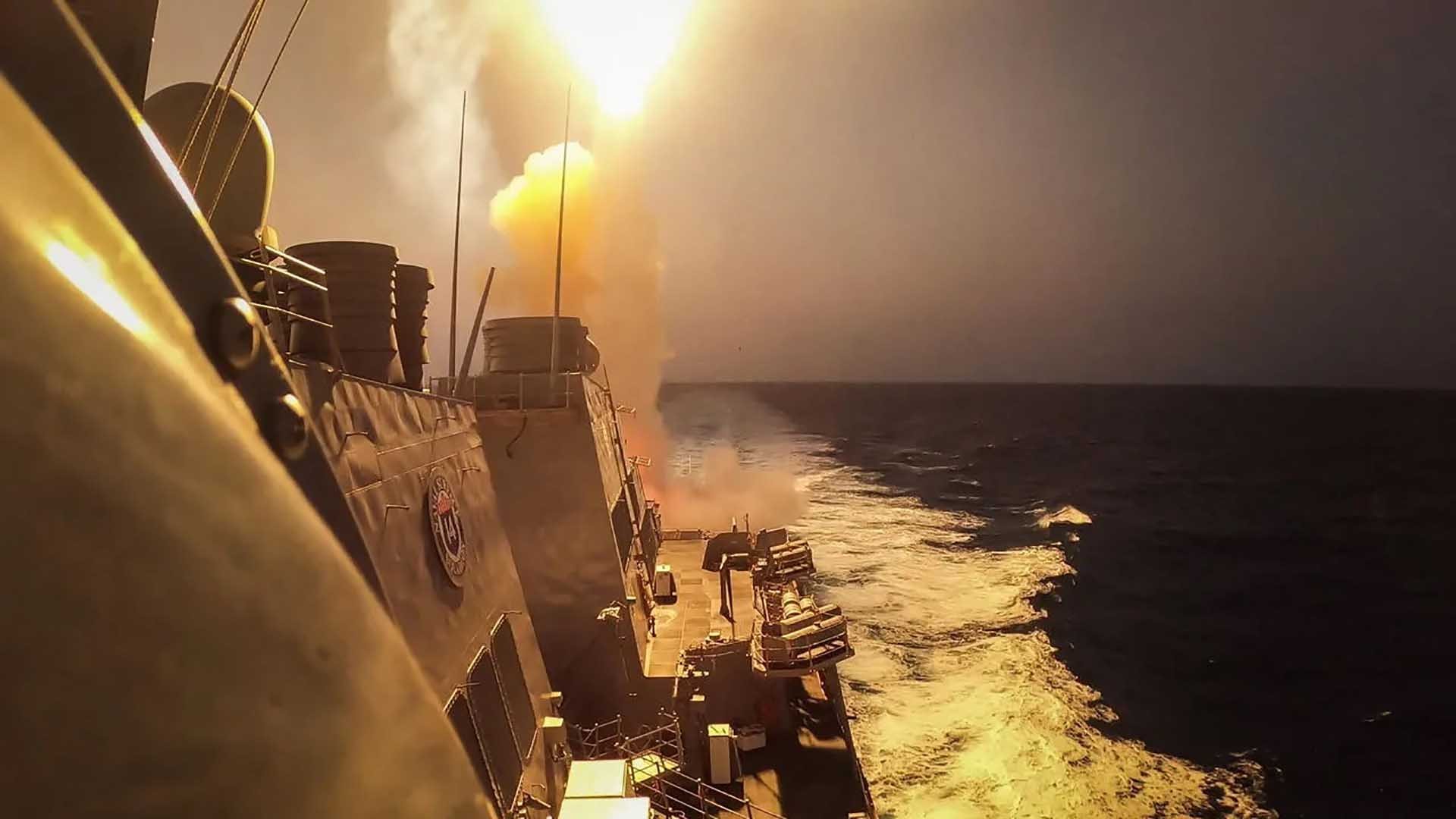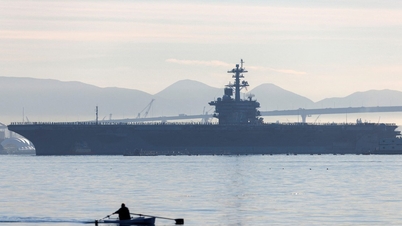The Economist (UK) commented that recent Houthi attacks on commercial ships have sounded the alarm about the security situation in the Red Sea.
 |
| The destroyer USS Carney shot down a Houthi UAV on December 3. (Source: AFP) |
On December 3, Houthi rebels in Yemen fired ballistic missiles at the Unity Explorer, Number 9 and Sophie II as the three cargo ships were passing through the Black Sea. Fortunately, the attacks caused only minor damage and no casualties.
Notably, while moving to assist the above-mentioned distressed ships, USS Carney, a US Arleigh Burke-class guided-missile destroyer, shot down several other unmanned aerial vehicles (UAVs) heading towards it.
Shortly after the incident, Houthi forces admitted carrying out attacks targeting two ships they said were Israeli.
The US Central Command said it was considering “appropriate responses” to attacks that threaten international commerce and maritime security in the region. Notably, they said that while the attacks may have used missiles of Iranian origin, the Houthis were the ones who made the decision to attack. More importantly, the frequency of such incidents is increasing.
Strategic opportunities
Emile Hokayem, an expert analyzing Iran's military activities in the region at the International Institute for Strategic Studies (IISS) based in Washington DC (USA), said the attacks brought strategic opportunities for the Houthis.
First, by linking these incidents to the IDF’s attack on Hamas in Gaza, the Houthis could improve their standing in the Arab world , which still supports the Palestinian cause. It would demonstrate that the Houthis, as they claim, are on the side of the underdog, and furthermore, that they can attack targets other than Saudi Arabia.
In addition, the Houthis want to send a clear signal that the Red Sea can now be a legitimate “stage” for anti-Israel efforts. At the same time, this force is ready to pursue US warships and commercial vessels with ties to Israel, however tenuous. The complexity of the recent attacks also shows that the Houthis are no longer the “patchwork” force that many people think.
A powerful arsenal
The growth and will of the rebels in Yemen is evident in the assessment of Mr. Fabian Hinz, an expert on missiles and UAVs in the Middle East at IISS.
According to the analyst, the force may have received a large number of anti-ship missiles and UAVs from Iran, during the fight with the Yemeni army. The Houthis possess at least 10 different anti-ship missiles, including the sea-skimming Exocet missile, which is capable of receiving radar signals and has a range of 120 km. In addition, they also have Quds z-0 and Sayad cruise missiles, with a range of up to 800 km and radar, infrared or electro-optical seekers to identify targets.
At the same time, the Houthis have an arsenal of anti-ship ballistic missiles that range from locally produced short-range systems to much longer-range and heavier missiles like the solid-fueled Asef and Tankil (based on Iran’s Fateh and RAAD-500 missiles, which can carry 300kg warheads and are designed to hit warships at ranges of up to 500km). Judging by the limited damage in the latest attacks, the Houthis likely used smaller missiles.
That’s not to mention the attack UAVs. According to Mr. Hinz, the UAVs recently shot down by the USS Carney were intelligence and reconnaissance UAVs copied from the US RQ-21. In addition, the Houthis also own a number of unmanned ships capable of laying mines.
Need a solution
Given the size and diversity of their anti-ship arsenal, the Houthis are well-positioned to threaten waterways moving through the Bab al-Mandab Strait, which runs off the coast of Yemen and is a chokepoint in the Red Sea.
However, it is not difficult to see that US warships are not among the targets. Despite their size, the Houthi arsenal has not been able to harm the US Navy's well-defended destroyers and aircraft carriers.
Whether these ships can protect trade routes in the Red Sea is another matter, however. Missile attacks on commercial shipping are on the rise. Finding and destroying the launch sites and arsenals may be the solution, but it is certainly not an easy task for the United States.
Former US Defense Secretary Leon Panetta called for a more aggressive approach to the Houthis over the weekend, but Hokayem said the last thing the White House wants is to be drawn into Yemen’s civil war, a conflict that the Biden administration is trying to de-escalate.
In that context, Houthi attacks on commercial vessels continue to be a threat in the Red Sea that cannot be ignored.
Source




![[Photo] President of the Cuban National Assembly visits President Ho Chi Minh's Mausoleum](https://vphoto.vietnam.vn/thumb/1200x675/vietnam/resource/IMAGE/2025/10/1/39f1142310fc4dae9e3de4fcc9ac2ed0)

![[Photo] Hanoi morning of October 1: Prolonged flooding, people wade to work](https://vphoto.vietnam.vn/thumb/1200x675/vietnam/resource/IMAGE/2025/10/1/189be28938e3493fa26b2938efa2059e)
![[Photo] Keep your warehouse safe in all situations](https://vphoto.vietnam.vn/thumb/1200x675/vietnam/resource/IMAGE/2025/10/1/3eb4eceafe68497989865e7faa4e4d0e)



























































































Comment (0)